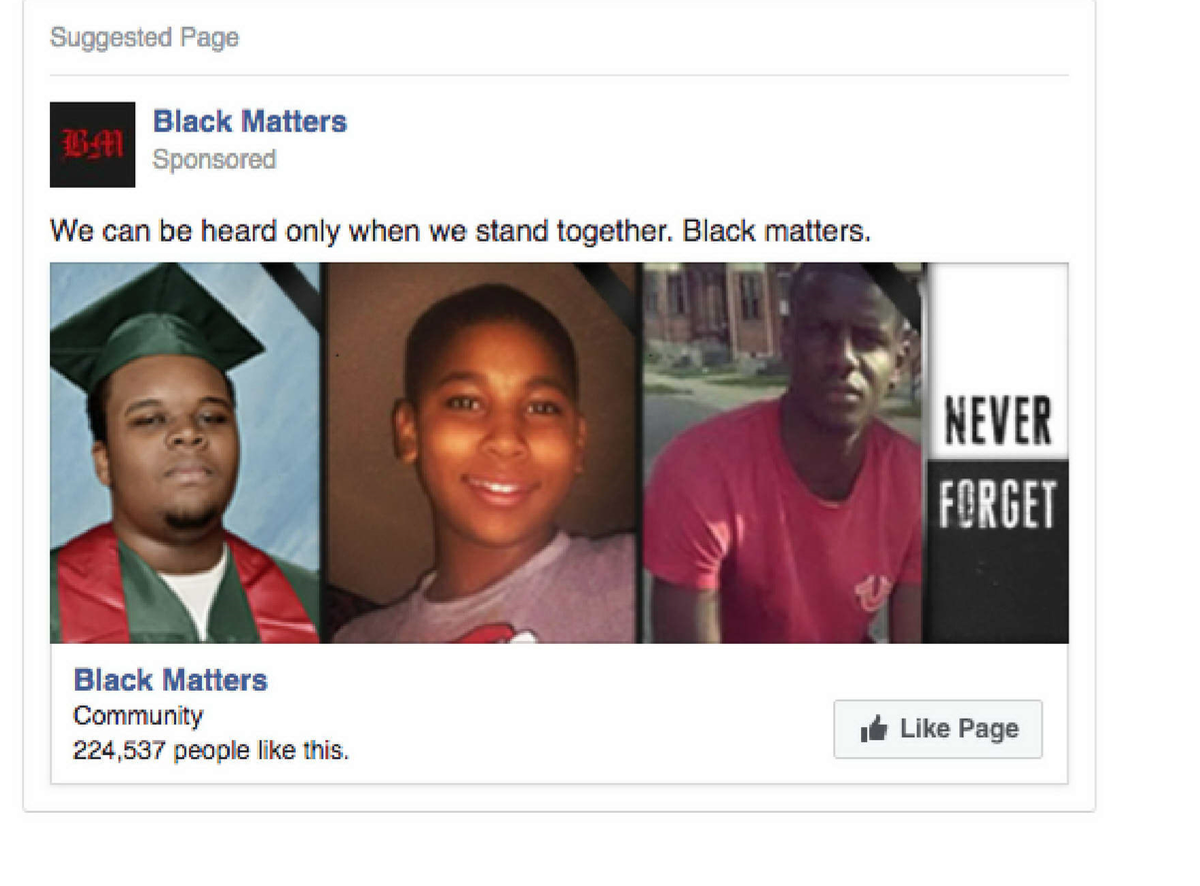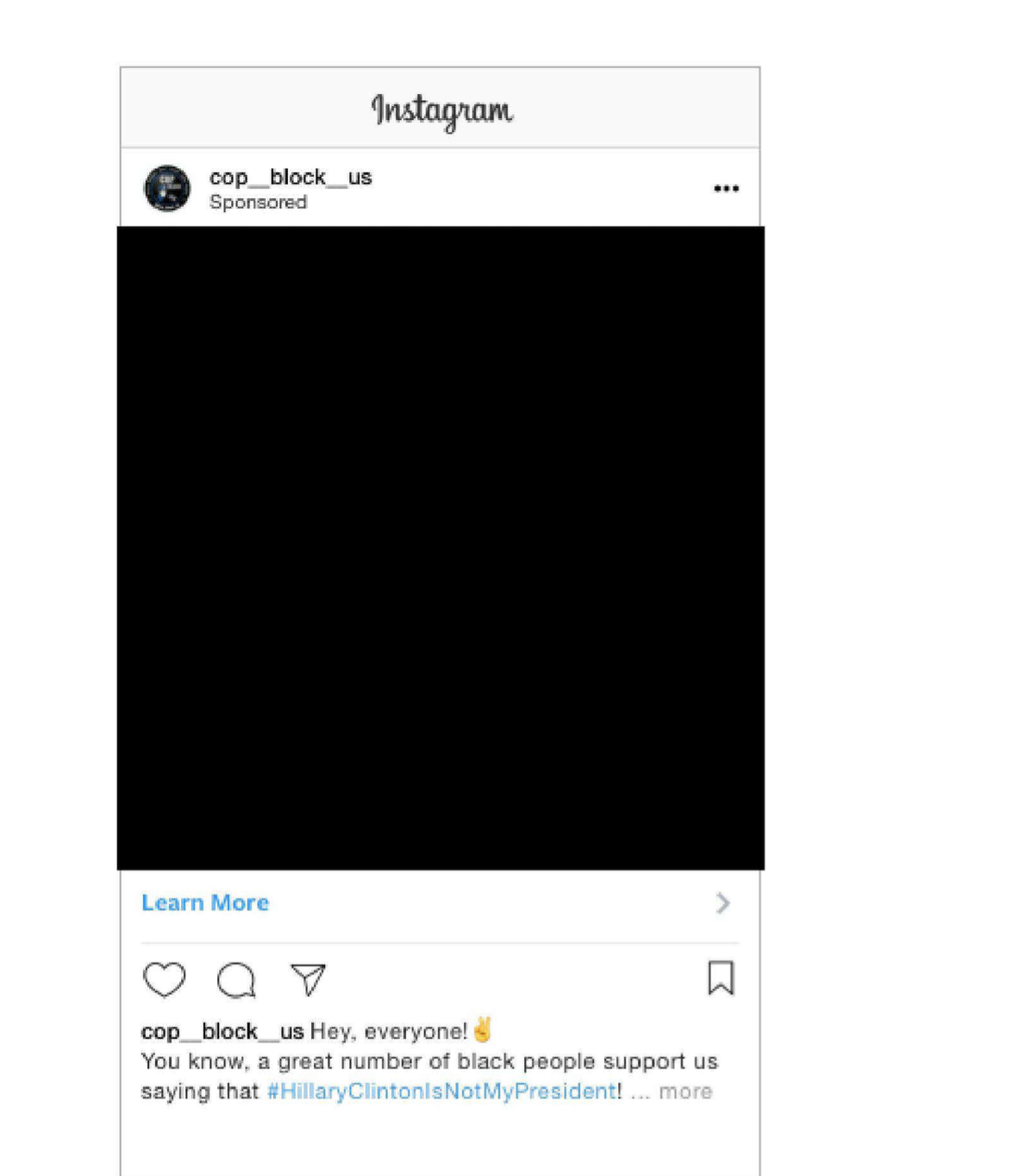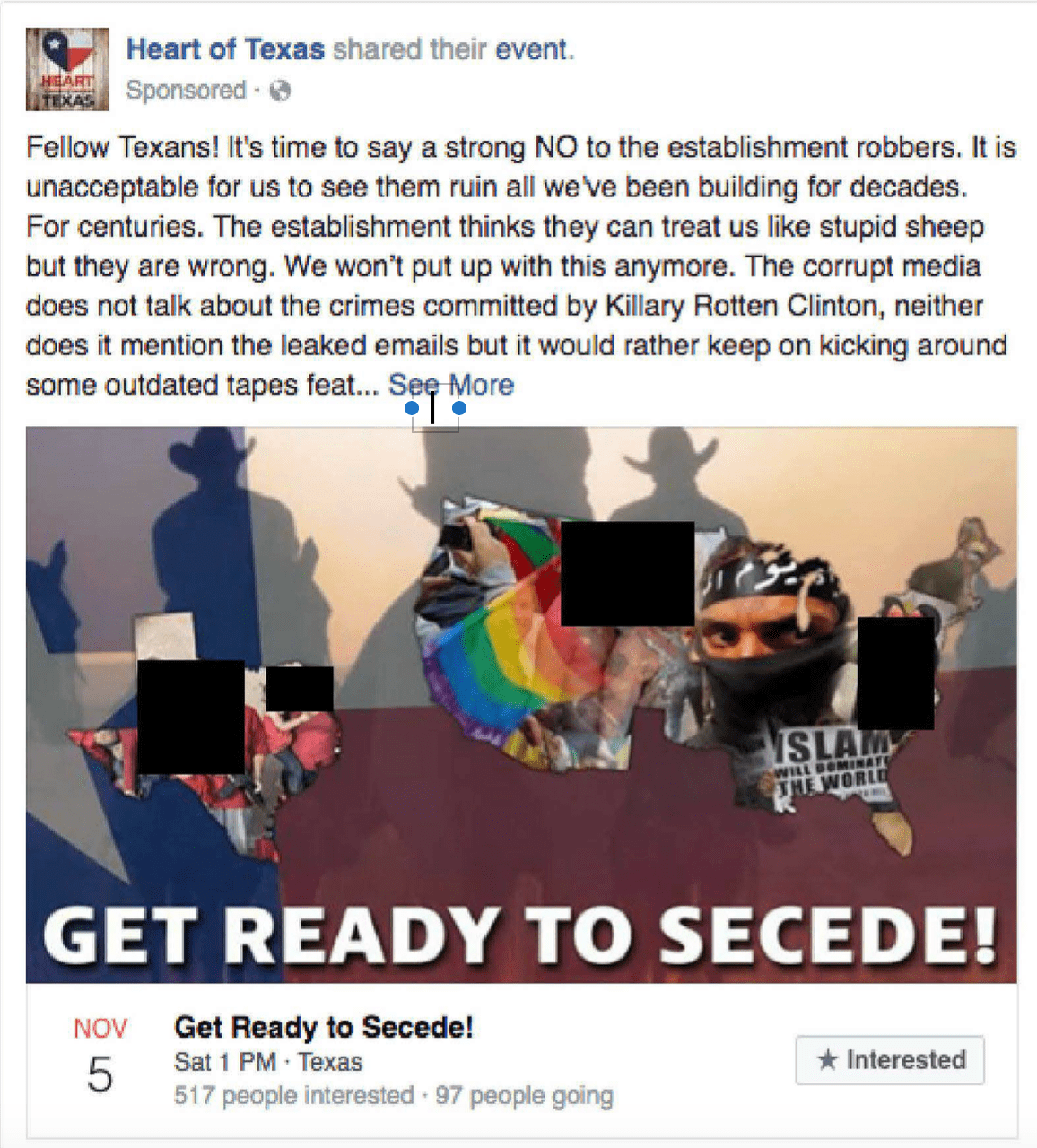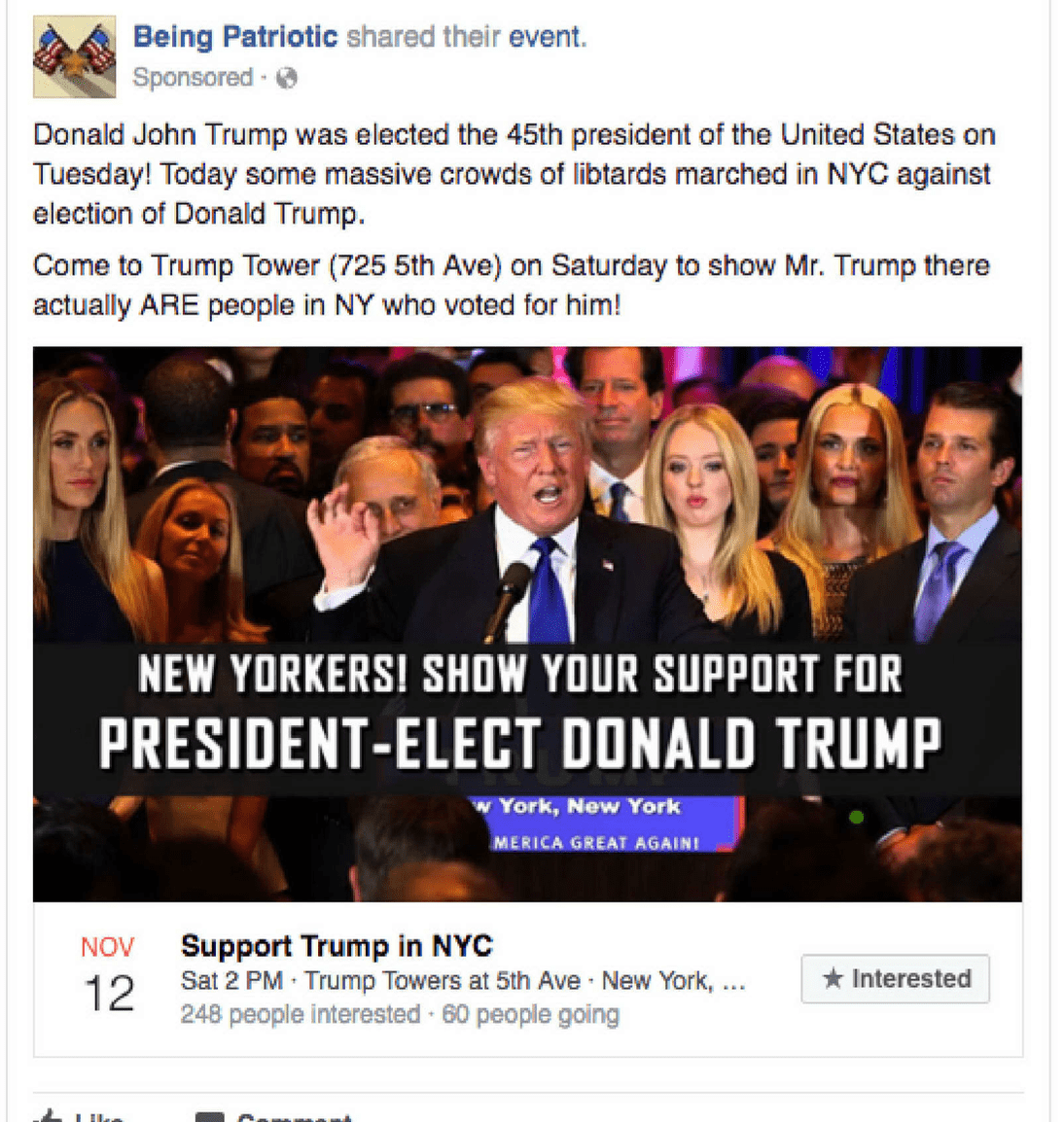House Democrats released over 3,500 ads from Instagram and Facebook Thursday that were purchased by Russian operatives in an effort to disrupt the 2016 presidential election.
The Democrats’ decision to release the advertisements comes nearly two weeks after their Republican counterparts on the committee released their final report stating there was no collusion between Donald Trump’s presidential campaign and Russia to sway the election, and that Russians had no intent to elect Trump and undermine Clinton.
Less than three months ago, Special Counsel Robert Mueller indicted 13 Russian nationals and three Russian companies for spearheading a campaign to divert support away from Hillary Clinton and towards Trump in the 2016 election. House Democrats argue that these ads only bolster that case.
“There’s no question that Russia sought to weaponize social media platforms to drive a wedge between Americans, and in an attempt to sway the 2016 election,” Rep. Adam Schiff, the ranking Member of the House Permanent Select Committee on Intelligence committee said in a statement announcing the release of the ads. “Russia sought to divide us by our race, by our country of origin, by our religion, and by our political party.”
The ads, which were posted on Facebook between 2015 and 2017 and were originally provided by Facebook to members of Congress, were created by the Internet research agency, an organization linked to the Kremlin. They show an operation designed to build on existing domestic tensions, including issues like immigration, anti-Muslim sentiment, and clashes between African-Americans and law enforcement. (Facebook acknowledged in a statement Thursday that they were “too slow” to spot the operation and have subsequently adjusted accordingly).
While only a small portion of the advertisements appeared to directly mention Clinton or Trump, there were indisputably ads, both explicit and more subtly, designed to undermine Clinton’s candidacy.
Here’s what we learned about the operation, based on TIME’s review of the ads.
Some ads targeted black voters in cities suffering from racial tensions
Some ads don’t look like attempts to directly influence the election, but rather intensify longstanding divisions within the country.
Beginning in 2015, some advertisements were specifically targeting people who had shown interest in the Black Lives Matter movement. But often, they were targeted specifically to people who lived in three cities that were filled with the the most heightened racial tensions between law enforcement and black residents.
The ads were frequently targeted toward Facebook users living in Ferguson, Missouri, which had erupted in violent protests in 2014 after an African-American, Michael Brown was fatally shot by a white police officer; Baltimore, which became a site of protests after an African-American, Freddie Gray sustained a spinal chord injury in police custody and ultimately died; and Cleveland, where 12-year-old Tamir Rice was shot by police in 2014.

In the immediate aftermath of the shooting in Charleston, South Carolina, where nine African-Americans were murdered in their church, an ad ran – again targeted to those three cities – questioning the inevitability of racist problems in the United States.
“Unfortunately, American tolerance is not what we think it is,” the ad reads. “What if America is still a deeply racist country? What if the church is not a safe place anymore?”
Advertisements geared towards supporters of Black Lives Matter persisted throughout the election cycle.
Some ads sought to undermine Hillary Clinton among black voters
A relatively small portion of the ads that were released Thursday explicitly related to the 2016 election. But some that were released showed attempts to undermine Clinton’s support among black voters.
On April 6, 2016, after Hillary Clinton had swept the southern primaries, largely by racking up votes from the African-American voters, an ad ran on Instagram – linked to the page Black Matter U.S. – requested social media users to take photographs with the hashtags #HillaryClintonForPrison2016 and #nohillary2016 as part of an organized “flash mob” against the candidate.

“A great number of black people support us saying that #HillaryClintonlsNotMyPresident!” the ad states. “So this time we would like to make a #flashmob against #HillaryClinton because she is the real enemy of black community and our followers prove it showing their disgrace to her personality and policy.” Another ad that ran on June 16 claimed “Hillary Clinton does not deserve Black voters.”
Other advertisements related to Clinton had nothing to do with race, but capitalized things like her family’s foundation, which one ad described as “organized crime at its finest.” Another ad said that she could not be entrusted with oversight of the Veterans Affairs department.
Ads attacked Clinton more forcefully after the ‘Access Hollywood’ tape
The ads explicitly denouncing Hillary Clinton – and by default, implicitly supporting Trump – appeared more frequent as the election heated up. On October 26, a Facebook page called Heart of Texas created an event designed to express support for secession if Clinton won the presidency. Trump is barely mentioned in the advertisement, but is implicitly lauded as the better alternative because of the way it slams Clinton.
The ad was created a little over two weeks after the Access Hollywood tape was published, in which Trump was recorded discussing how he gropes women, and derides the media for what it deemed its favorable coverage toward Clinton.

“The corrupt media does not talk about the crimes committed by Killary Rotten Clinton, neither does it mention the leaked emails but it would rather keep on kicking around some outdated tapes featuring Trump,” the ad reads. “Even Republicans are now offering her a victory by renouncing their nominee.”
The ad goes on to state that if Clinton won the election, there would be “higher taxes to feed undocumented aliens. More refugees, mosques, and terrorist attacks. Banned guns. Continuing economic depression.”
After Trump was elected, however, another advertisement was published, this time for an event to showcase support for the President-elect after his victory.

More Must-Reads From TIME
- The 100 Most Influential People of 2024
- The Revolution of Yulia Navalnaya
- 6 Compliments That Land Every Time
- What's the Deal With the Bitcoin Halving?
- If You're Dating Right Now , You're Brave: Column
- The AI That Could Heal a Divided Internet
- Fallout Is a Brilliant Model for the Future of Video Game Adaptations
- Want Weekly Recs on What to Watch, Read, and More? Sign Up for Worth Your Time
Write to Alana Abramson at Alana.Abramson@time.com